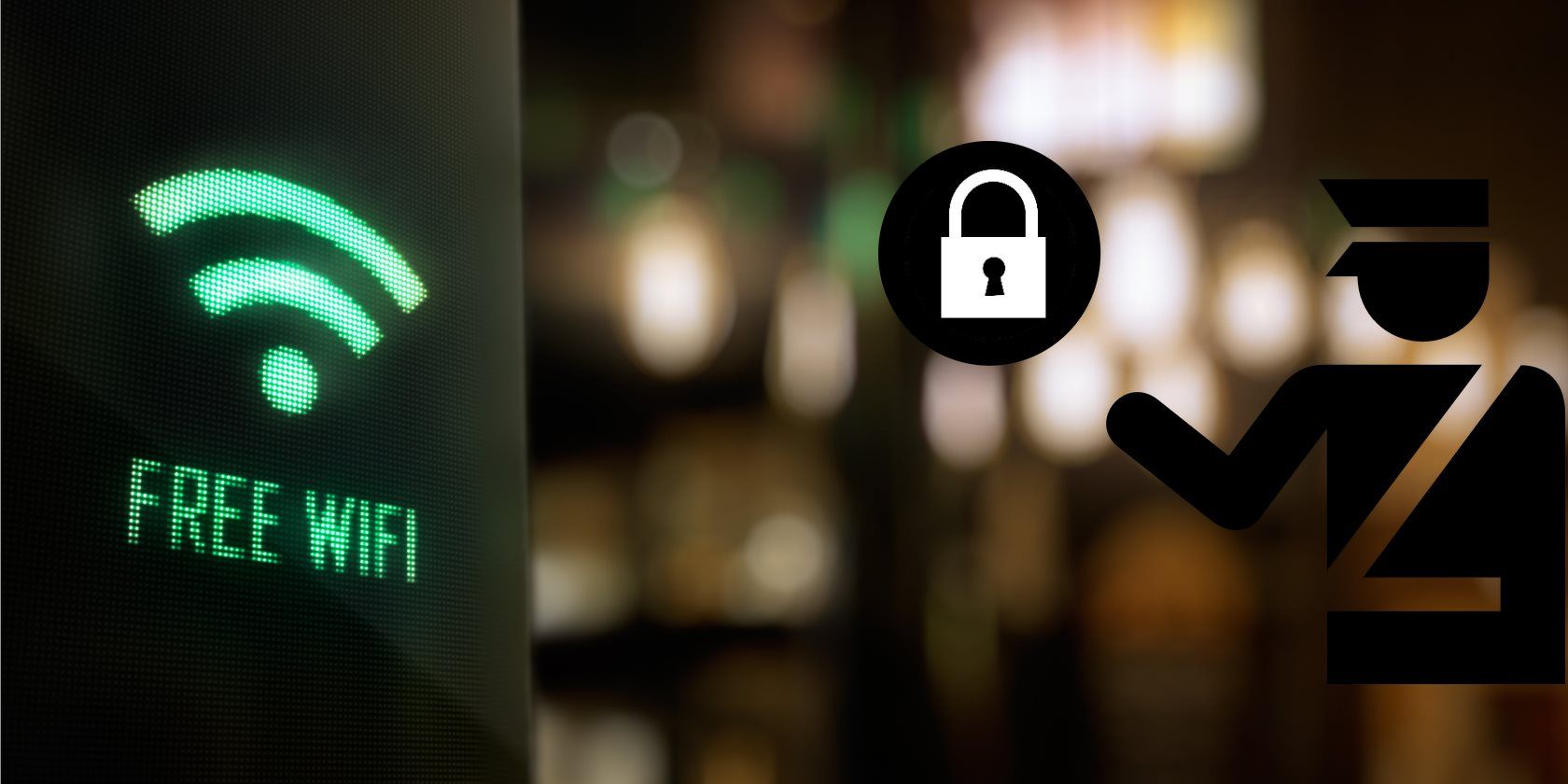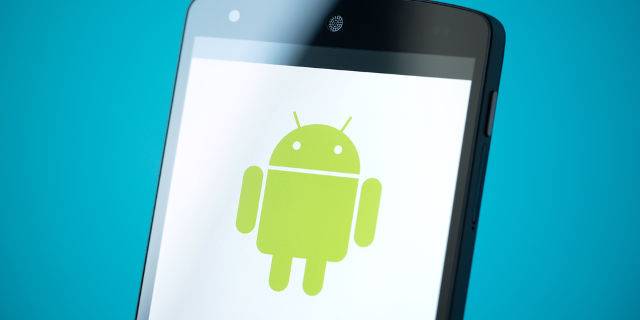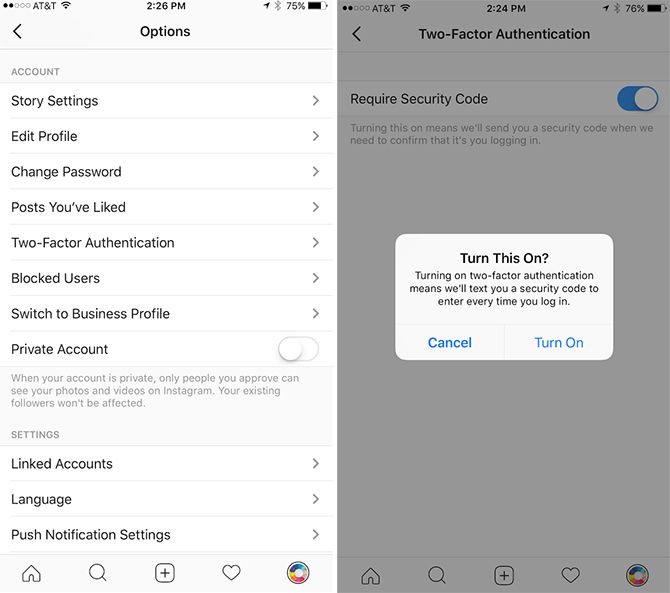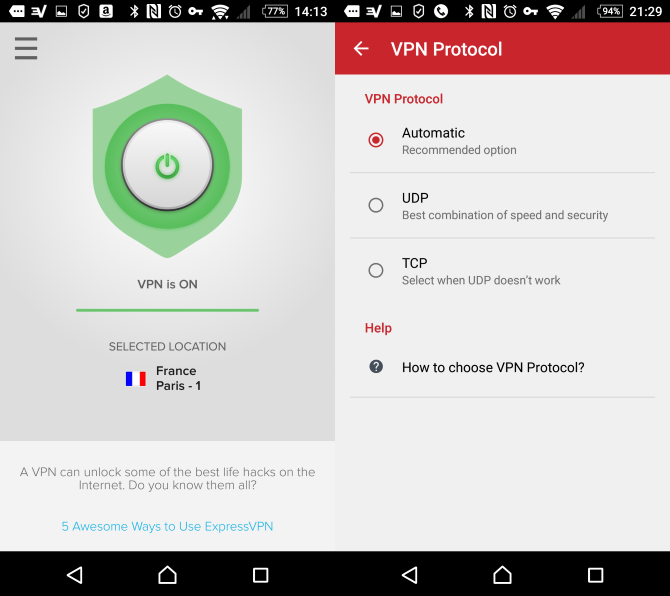You're out and about, doing your shopping at the local mall. Or you've just checked into a hotel. Perhaps you're at a theme park. Either way, there's public Wi-Fi and you need to get online. You could use your data allowance, but it could be that you're hitting the limit. Or you might be in a location with poor mobile reception.
Using public Wi-Fi is the only answer. But is it safe?
In your rush to get online, you might have overlooked the fact that the public Wi-Fi network could be unsafe. Indeed, it might never have occurred to you that open Wi-Fi can be a risk. So before you sip your latte, and before you pull up Facebook on your phone, consider these simple secure strategies to using public Wi-Fi safely.
1. Keep Your Operating System Up to Date
Operating system updates aren't just about delivering new features to your Android or iPhone. They're sent out to harden the operating system, fix vulnerabilities, and prevent hackers from stealing your data.
As such, it is vital that you install your operating system updates. Whenever a new iOS update comes along, download and install it to your iPhone. When Google pushes new updates, install them on your Android device. Concerned about storage limits? Back up or sync vital data to the cloud, then make the space, delete the apps, so that the updates can be downloaded and installed.
And this tip isn't just for public Wi-Fi, it's for everything. Keep your mobile operating system updated regardless!
2. Use Mobile Security Tools
Before using public Wi-Fi, you should ensure that your phone has suitable security software installed. While this doesn't apply so much to iOS users, Android has a problem with malware. Such software would provide a firewall, and malware scanning and removal.
The reasons are clear. Should you connect to an unsecured open Wi-Fi network, you risk exposure to malware from other devices on the network. This might be accidental -- perhaps a worm propagating itself from one infected device to another -- or it might be intentional, sent by a malicious user who might be sat quite close by.
Mobile security apps can mitigate against this, protecting your device either by actively defending, or scanning and removing the offending malware. While most malware targets Windows computers, don't overlook the fact that there are mobile-focused alternatives. Android in particular is as big a target for hackers and scammers as Windows. If you're concerned about malware on your Android device, these tips will help you enhance your Android security.
3. Don't Waste Time With a Slow Public Wi-Fi Network
Logged onto an open Wi-Fi network and found that your connection is slow? Trouble even making a connection to the sign-in page? Take care -- or better still, disconnect.
There is a chance that this sluggish speed is because the router has been compromised. Another explanation might be that you haven't connected to the router at all, but to another device posing as the router. Speed may appear slow because data is being routed via the other device.
But what could the other device be?
Well, using public Wi-Fi opens you up to all sorts of cyber criminals. As well as "sniffing" your wireless signal for username/password information, scammers might configure their PC as a fake router. All they have to do is sit back and wait for someone to connect to their device by mistake. Any unencrypted passwords and other personal data that you then send can be captured, as can a history of the websites you visit. In short, these criminals can steal your identity.
4. Avoid Financial Transactions Without Protection
Online banking and shopping over an unsecure, public Wi-Fi connection is unsafe. Those sniffing scammers can use the tools at their disposal to make things very difficult for you the moment some unencrypted data heads their way. Naturally you should only shop with companies that keep your password secure. It's best that you avoid creating issues at your end.
So what can you do to ensure safety? One way is to switch to your own mobile internet connection, if possible, and conduct the transaction safely that way. You might also employ a VPN (see Tip 7 below for more details) to encrypt all your internet traffic.
If you're using an online banking service, make you're using your bank's official app, and that it offers full encryption. Similarly, stick to official, secured apps for online shopping. If they're not secure, don't shop until you can be certain it's safe!
5. Use Two-Factor Authentication Wherever Possible
We're big fans of two-factor authentication here at MakeUseOf, and you should be too. This is the means why which you can be certain that you are communicating with the online service you think you're using. Similarly, they can be certain that it is you trying to login, or make a banking transaction.
The two factors used in standard 2FA are usually something you know (your login credentials) and something you have (a generated code on your phone, or a text message sent via the online store, bank, or other service). Once correctly input, you can be certain that you're using a genuine website.
Two-factor authentication is usually offered by security-savvy online companies. However, be aware that activity conducted after a two-factor sign in are easily observed by the owner of a fake router or network. As such, do not rely on this as your "fire and forget fix" for open Wi-Fi networks.
6. Disable Wi-Fi When You're Done
This is a very simple idea, but one that many people just ignore. But switching off your smartphone or tablet's wireless internet when you're done is a great idea. Additionally, any internet connection sharing functionality -- such as Windows 10 Mobile's version of the WiFi Sense tool -- should be disabled before you connect.
With Wi-Fi disabled, any attempts to drop unwanted malware onto your device will fail. Nearby scammers trying to performing drive-by hacks will find their attempts hit a wall with no data connection to utilize. In short, this is one of the most decisive actions you can take to protect your smartphone on public Wi-Fi.
7. Don't Connect to Public Wi-Fi Without a VPN
Much of the risk in using a public Wi-Fi can be minimized with the use of a VPN. Traditionally available only for desktops and laptops, many VPN providers now produce mobile apps. These handy clients can be used to connect to a secure VPN server, thereby encrypting your traffic as it leaves your device.
VPNs have many purposes from proxy avoidance to overcoming region blocking. They're also the best security tool you have for browsing the internet in every sense.
Worries about the security of your financial transactions and purchases, and the possibility that you connected to a fake router, can all be dismissed. With a VPN, data security and privacy is assured, enabling you to stop worrying about the hackers. Our list of the best VPN providers features services that offer mobile apps, although if you want a quick recommendation, look at ExpressVPN.
How do you keep your online activity safe and secure when using public Wi-Fi on your phone or tablet? Do you have any tricks we've overlooked here? Tell us about them in the comments.
Image Credit: phive via Shutterstock.com





